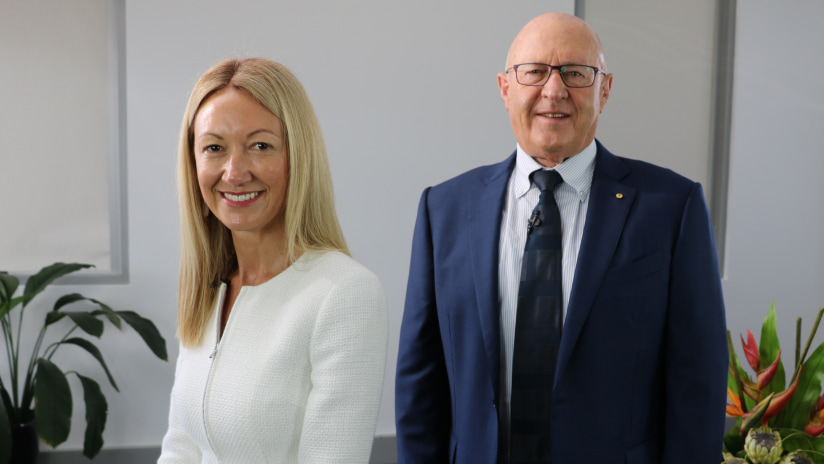How to help your business shine with innovation

What is innovation and why is it so important?
As defined by Harvard Business School: 'Innovation is a product, service, business model, or strategy that's both novel and useful.' In other words, to be innovative, your business doesn't have to reinvent the wheel. Innovations can be as simply as updating the way you communicate with customers or adding on a feature to an existing product.
In a nutshell, innovation means different things to every business. However, the desired outcome is usually the same: to help your business adapt or grow, so you can embrace, and maybe even lead, new trends in your industry.
How to embrace innovation from within
The best ideas for your business are often the ones that come from within. From within, we mean from inside sources who are well-positioned to look at your business from different perspectives. Examples of inside sources may include:
- Head office employees
- Front-of-house staff
- Delivery partners
- Freelance consultants
Ways to encourage your team to think outside the box
If you’d like to add more innovation to your business model, you could:
- Give team members new and different responsibilities to help them better understand the business and its objectives.
- Allow team members to switch roles with colleagues (even if only for a few hours) to help them gain different perspectives.
- Invite feedback on your ways of working during staff meetings to help encourage creative thinking.
The above approaches may not work for all businesses, but they can be beneficial. By gaining different perspectives on daily tasks, your team members may think of new ways of working which could also help to increase your efficiency as a business.
How to make sure everyone is heard
Innovation is a team effort that involves management, leaders, and all other employees. Make sure your team understands all ideas are welcome and let them know how they can share their thoughts.
To encourage and support innovation, you could:
- Install digital platforms that allow team members to collaborate and document ideas.
- Encourage leaders to dedicate times for teams to discuss and evaluate suggestions.
- Remind your employees that their ideas are valued.
Ways to build a work culture that encourages innovation
To encourage innovation, culture is key. While tools, processes, funding, and leadership support are all important, these elements work best when backed by an inspired team.
In today’s world, many employees work from home as well as on-premises. If you run your business via a hybrid working model, it’s important to empower your team with the tools they need to keep the collaborative spirit alive, even when working remotely.
How you can support creativity and collaboration
- Schedule team video calls at regular intervals throughout the working week.
- Balance routine team meetings with informal ad hoc calls and sessions, to emulate a physical office environment where collaboration is sometimes more spontaneous.
- Consider booking more casual meetings to share a cup of tea or run a trivia session where team members take turn at asking questions to help build team morale.
These ideas will help your team to get to know one another professionally and personally. The more comfortable your team feel with one another, the more confident they may feel to share their ideas with the wider working group.
Consider using digital tools that support collaboration
The right technology solutions can help your business thrive. In fact, small and medium businesses who accelerate investments in the adoption of digital tools and technology grow in revenue more quickly, research by Innovation and Science Australia (ISA) shows.
How collaboration technologies empower hybrid workforces
- Digital platforms allow your teams to collaborate while working remotely.
- Real-time messaging apps, such as Microsoft Teams, can help employees stay in touch with each other and external collaborators via chat groups.
- Direct messaging platforms help to reduce volume of email correspondence by giving team members an alternative way to keep in touch.
Unified communications solutions help to merge mobiles and desk phones, a tool that helps employees who have to call clients and customers on a regular basis.
Other project management apps, like Trello or Asana, can also help you track work and delegate tasks. And if you want to hold virtual meetings that call for collaboration, look into Miro, an online whiteboard platform designed for teams that work together remotely.
Learn more about finding balance with hybrid working
Offer your team training and support
When you offer training programs, it helps employees to feel empowered, knowledgeable, and confident. This, in turn, helps team members to feel more comfortable voicing ideas. Software providers, like Microsoft, and subscription tools, like Miro, often offer free training for your teams so that you can get the most out of your digital solutions.
Ways to host training sessions as a business
To help your employees upskill, you could:
- Invite software reps to teach employees how to use certain tools, via training sessions held on-premises or online.
- Encourage staff members who are experts in certain fields to share their knowledge on certain topics, either in formal sessions or day to day.
- Support the professional development of your team by encouraging employees to share their learnings.
Ultimately, innovation involves all members of your business. When you build a culture that encourages action based in innovation, you also encourage evolution. This, in turn, helps your business survive and thrive in today’s increasingly competitive world.
Empower yourself to get the most from technology
Learn how to choose the right technology solutions. Get help to boost efficiency, build skills, and integrate tech.
24/7 IT support. Help when you need it most
Our experts are only a phone call away to help with hardware, software, and network challenges as they happen, whether they're with Telstra's tech or not.




